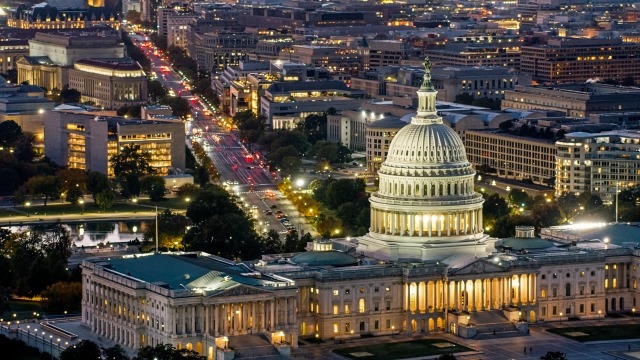A view on the 2025/2026 Northern Territory Budget
Introduction
Northern Territory (NT) Treasurer Bill Yan has handed down the first Finocchiaro Country Liberal Party Budget for the NT (the Budget).
The NT’s net debt is overall expected to exceed more than $12 billion in 2025-26 and forecast to increase to nearly $14 billion by 2029. The Budget focuses on three main areas [1]:
- Reducing crime;
- Rebuilding the NT economy; and
- Restoring the ‘Territory lifestyle’.
In terms of taxation, as anticipated, no major tax measures were announced. However, the Budget delivers some welcomed measures to NT payroll tax, an update to the NT stamp duty exemption for certain exempt entities (e.g. non-profit organisations) and minor changes to certain NT gambling taxes.
The key NT tax measures from the Budget are outlined below.
Key tax measures from the Northern Territory Budget 2025 - 2026
Payroll Tax
Payroll Tax threshold and annual deduction increase from 1 July 2025 [2]
- Currently, payroll tax in the NT is imposed at a rate of 5.5% on wages paid by employers with taxable wages in excess of $1.5 million.
- From 1 July 2025, the tax-free threshold and maximum annual deduction will increase from $1.5 million to $2.5 million. As a result, employers with taxable wages of $2.5 million or less will be exempt from paying payroll tax in the NT.
- Notably, the maximum annual deduction will reduce at a rate of $1 for every $2 of taxable wages above the tax-free threshold, instead of the existing $1 for every $4 of taxable wages.
- This means that there will be no relief available for employers that pay taxable wages above $7.5 million.
Apprentice and trainee exemption from 1 July 2025 [2]
- From 1 July 2025, wages paid to apprentices and eligible trainees will be exempt from payroll tax. As a result, wages paid to apprentices and eligible trainees will no longer count towards an employer’s taxable NT or Australian wide wages.
- To qualify for this exemption, the employee must meet the definition of ‘apprentice’ or ‘trainee’ as defined in the Training and Skills Development Act 2016 (NT).
- Additionally, trainee wages will only be exempt if the trainee was employed by the employer for less than 3 months (for full-time employees) or less than 12 months (for part-time or casual employees) immediately before commencing the traineeship. The purpose of this is to incentivise the hiring of new apprentices and trainees.
Payroll tax exemption for charities and not-for-profit entities from 1 July 2025 [2]
- The Budget has announced payroll tax reforms to make it easier for charities and non-profit entities to operate in the NT.
- Currently, the Payroll Tax Act 2009 (NT) has measures which prevent charities and non-profit entities from payroll tax exemptions if their work is connected to ‘commercial or competitive activities’, including essential services such as aged care, disability support or childcare.
- From 1 July 2025, the payroll tax exemption for charities and non-profit entities will be broadened to remove the ‘commercial or competitive activity’ test. This is welcomed reform as it is expected to:
- align the NT’s payroll tax exemption for charities and non-profit entities with the rest of Australia.
- reduce the financial barriers and red tape for charities and government; and
- encourage investment in aged care, disability support and childcare in the NT (noting there is an aged care shortage across the NT, including Darwin and Alice Springs).
Stamp Duty
Stamp duty exemption for exempt entities from 1 July 2025 [2]
- Similar to payroll tax, the stamp duty exemption for charities and non-for-profit organisations is being broadened.
- Currently, under the Stamp Duty Act 1978 (NT), conveyances of dutiable property to an exempt entity (e.g. a non-for-profit organisation) are exempt from NT stamp duty provided the property acquired is to be ‘solely’ used by the exempt entity for an ‘exempt use’ (i.e. the property cannot be used for carrying on a ‘commercial activity’).
- From 1 July 2025, the stamp duty exemption for such entities is being broadened such that they will no longer be required to substantiate that acquired property is used solely in a manner that is not commercial or competitive.
Other tax measures
- The Gaming Control Act 1993 (NT) will be amended to set a minimum 50% tax rate of activities conducted under an internet gaming licence effective from 1 July 2025. This measure will mean the legislated tax rate will override existing agreement-based tax settings for current internet gaming licences [2].
- The Taxation Administration Act 2007 (NT) will be amended to ensure administration of gaming tax is aligned with other NT taxes (e.g. in relation to collecting, refunding, and payment of tax as well as extending objection and appeal rights to licensees) [2].
- The Racing and Wagering Act 2024 (NT) will be amended to double the annual tax cap applicable to licensed corporate bookmakers and betting exchanges from 1 million revenue units to 2 million revenue units effective from 1 July 2025 [2].
[1] 2025-26 Budget, Budget Paper No. 1, Speech and Appropriation Bill, https://budget.nt.gov.au/__data/assets/pdf_file/0010/1515079/2025-26-bp1-speech-and-appropriation-bill.pdf
[2] 2025-26 Budget, Budget Paper No. 2, Budget Strategy and Outlook, https://budget.nt.gov.au/__data/assets/pdf_file/0006/1514832/2025-26-bp2-book.pdf
[3] Bill Yan and Steve Edgington, Joint Media Release, CLP Government eases payroll tax to support charities and aged care, https://createsend.com/t/t-89A1B7A1B00092B42540EF23F30FEDED





